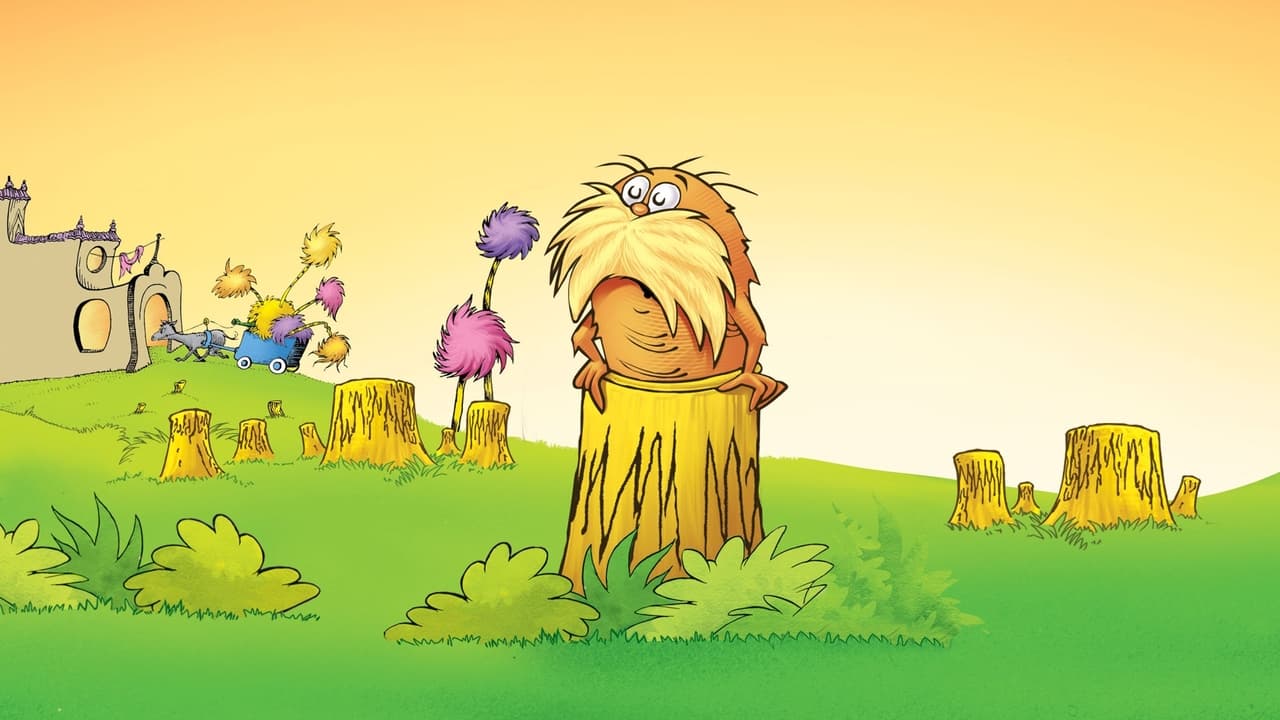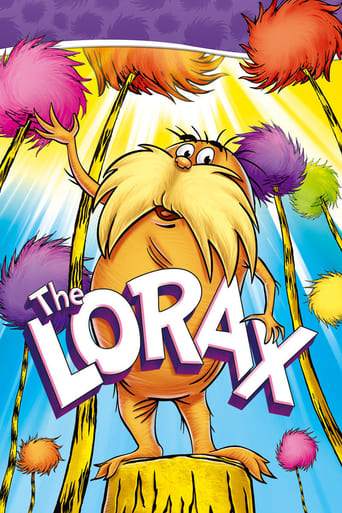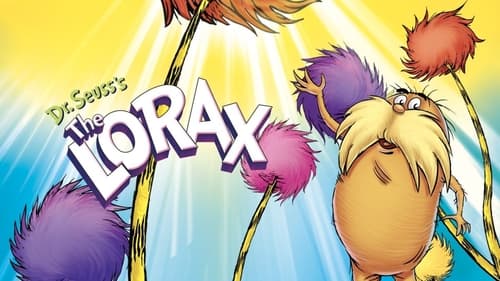


It is a performances centric movie
... View MoreA very feeble attempt at affirmatie action
... View MoreThis is one of the few movies I've ever seen where the whole audience broke into spontaneous, loud applause a third of the way in.
... View MoreAfter playing with our expectations, this turns out to be a very different sort of film.
... View MoreCute and surreal, of course, with a message as timely as it could be. The voices are good and the songs - well, they sound more like game show themes than anything else, but they are endearing in their own anachronistic, groovy way. I appreciated the Once-lers vacillating viewpoint; he wasn't just a monster, he was torn between good and bad. It helps me have a conversation with my kid about money and the environment, so I appreciate the moral of the story, but since it's Suess, it manages to avoid heavy-handed messaging (and this is probably Dr. S's heaviest- handed) and it stays uniquely weird-looking, which I appreciate too, since it helps me have a conversation with my kid about aesthetics.
... View MoreThe Lorax is a wonderful film based off of the beloved Dr. Seuss book. It shows the story of a greedy Once-ler who only thinks of himself and in his selfishness he destroys the Truffula trees. The Lorax, who speaks for the trees, tries his hardest to save the land and its inhabitance, but will his pleas be enough to stop the tyrant Once-ler? I enjoyed this film very much and I thought the cinematography was wonderful because it is exactly like the illustrations in the Dr. Seuss book. Being able to see the world through the creative eyes of Dr. Seuss is wonderful and now you can, better than ever, with the deluxe edition of The Lorax including an Ultra Violet copy of the movie. This movie delivers fantastic messages about caring for the environment and respecting the earth we live on. I like the Lorax character most because he stands up for the land and teaches that being greedy and self-centered leads to destruction. I loved all of the music in The Lorax and I especially liked the first scene when you see the land in all of its splendid glory. I give The Lorax 4 out of 5 stars for its strong messages and great classic entertainment. I suggest this film for ages 4 to 10. Raven Devanney, Age 15, KIDS FIRST! Film Critic.
... View MoreThough it is most often associated with the playfulness and innocence of youth, even the whimsical, surreal land of Dr. Seuss isn't exempt from the destruction that ruthless, money-driven big business tycoons can create, as charmingly demonstrated in the 1972 animated film, The Lorax.Our titular protagonist is a stumpy, passionate, and unmistakably Seussical creature who "speaks for the trees". He takes his job very seriously and adamantly speaks out against their depletion when an avaricious, faceless character known as the Once-ler, our antagonist whose blatant disregard for the environment is topped only by his insatiable greed, comes into the picture. Immediately upon seeing the soft, colorful tops of the Truffula trees, he starts hacking away in an attempt to turn nature into profit, but at a heavy price.After seeing just one of the trees chopped down, the Lorax springs into defensive action, only to be brushed off nonchalantly. "Look, Lorax, calm down. There's no cause for alarm. I chopped just one tree, I'm doing no harm. This thing is most useful! This thing is a "thneed." A theed, a fine something-that-all-people-need!" is the Once-ler's lethargic reply. As soon as he begins selling the odd but versatile thneeds, consumers start buying, thus beginning a voracious cycle of supply and demand that Mother Nature had apparently never prepared for.Before long, the Once-ler's business grows to the point where he cannot fulfill the demand for thneeds, leading him to call family over for assistance. They dutifully make the move over, bringing pollution and garbage with them.Meanwhile, the fantastical creatures that'd been living there find they are being forced out by the gradual but steady destruction of their habitat. The Once-ler is not as clueless about the grave situation as he would like to pretend, but he argues that if he didn't do it, "someone else would." Before long, many confrontations between the Lorax and Once-ler later, no creatures are left and the pair are sorrowed by "the sickening smack of an axe on a tree," as they "saw the tree fall... the very last truffula tree of them all." And with that, a defeated Lorax pulls himself up from the "seat of his pants", leaving behind only a small pile of rocks surrounding the word "Unless".Defying typical Seussical conventions, the film does not end on a generically happy note, but on an ambiguous one instead. The contrite Once-ler presents a young boy, presumably symbolizing the new generation, with the very last Truffula seed and the parting sentiment, "Unless someone like you cares a whole awful lot, nothing's going to get better. It's not." His words are especially powerful when one considers that throughout the film, he knew at the back of his head that what he was doing was wrong, but figured he could still take the time to "think it over" while the money rolled in. He finally realizes that things just don't get done by having people idly "think it over", and that instead action needs to be taken. While there is little evidence that suggests the boy's endeavor could be anymore successful than the Lorax's, one is still left with the possibility of hope, that even in the most dire of situations, things could always begin to turn around at least a little.It is interesting to note the direct association the characters make with progression and the devitalization of nature. The Lorax cries out at one point, "They say I'm old-fashioned, and live in the past, but sometimes I think progress progresses too fast!" It's almost sad to note how even the Lorax instantly identifies the terror of what the Once-ler is creating as a step forward rather than a step back. The economy is often placed in higher regard than the environment, leaving even the most hard-headed environmentalist to reluctantly bow down to its magnitude. The power of a country is measured by its wealth, not how green it is. And of course, a wealthy, strong economy is nearly synonymous with big businesses, many of which unfortunately produce excessive amounts of waste and do little to give back to the environment they abuse.It's also worth mentioning how the Once-ler manages to convince the consumer of what they need, rather than what they want. In today's society, this trend continues. Through clever advertisements, the line between a person's wants and needs is often blurred. Many of the items that we once may have considered a luxury are now thought of as necessities, and even things that may be flashy and superfluous are easily thrown into the category of "needs", as today in society it is imperative to live in luxury and be up to date with the latest trends. Little Tabitha doesn't want the new Miley Cyrus CD, she needs it. After all, if she doesn't get it, how will she be able to keep up with her all of her friends? She won't; she'll be isolated and doomed to the life of a loner, or so she argues to her mother, who begrudgingly complies. And so another voracious cycle begins.I watched this movie as a project for a College Now class, and I'm glad I did. Great for giving the young ones a head start, and great for inspiring adults to start a new leaf.
... View MoreAs Dr. Seuss's work was usually politically charged,* "The Lorax" does a good job looking at the environment. Scary is how realistic the book/movie eventually became (especially under George W. Bush). But it does have an element of hope to it. I guess that it makes sense to have Eddie Albert narrate, given his environmental work. After watching the movie, you just might feel like speaking for the trees, and all other wildlife.*"The Cat in the Hat" was promoting rebellion, "Yertle the Turtle" was about the class system, "The Butter Battle Book" was about the Cold War-era arms buildup.
... View More